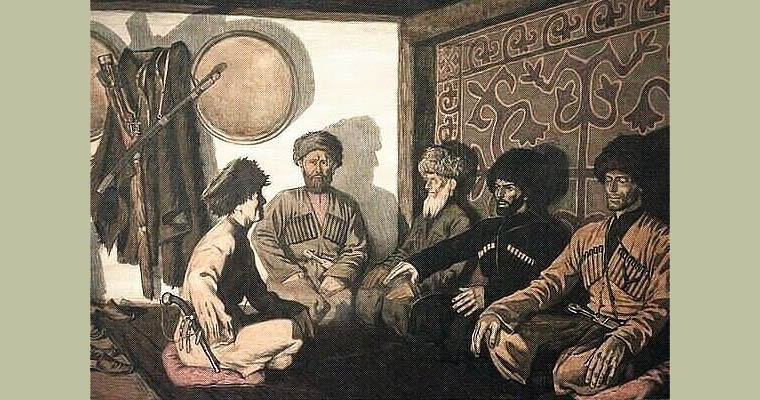
The article “Chechens” (translation B. Skilotti) is a translation from the German language to become a traveler in the Caucasus M. Wagner. M. Wagner was frightened by stories about Chechens, Chechens, and this fear has left its bad mark on his article. He imagined the look of the Chechens’ desire for infidelity and murder, “he” would be at the invitation of the Chechens in the village did not follow. ” Despite all of this, “Chechens” are history. The value, the more that the literature on Chechnya is still almost no was no. “Chechens”, written nearly 80 years ago, interesting for the modern reader, although in the article and there are some irregular situation and erroneous conclusions, it is clear to the Soviet man. And just because it is interesting to read the article about Chechnya and the Chechens foreigner – a contemporary war in the Caucasus, this article is placed in the proposed collection. The article “Chechens” are placed in the German book “The Caucasus and the land of Cossacks from 1843 to 1846”, Leipzig, 1848.
How to make the Circassians in the Western Caucasus main core Russian enemies, which are grouped around different genera other small peoples – Abkhazians, Abikh, chigetov, Elbrus Tatars (Karachai) and Kabardians as among the mountain peoples of the Eastern Caucasus Chechens are at the head of resisting the invasion of the northern invaders. The name “Chechens” refers, in fact, one small race of people, who, however, so stood out by his courage and energy that Russian this name represent all nationalities who speak the same dialect, which, including Kistinians and Ingush, there are up to 150 thousand shower. Circassians, Tartars and Lezgins called this nation “mizchegi” (page 187). Extremely severe adverb Chechens have nothing to do with the language of the Circassians, Lezgins, Ossetians and Tatars, although some words from different dialects of the mountain and went to the Chechen language. Klaproth disclose this language because of its structure as a self-made, but says at the same time that the Chechens have a few words from their neighbors – the Avars. Concerning the origin of Chechens still exists the deepest darkness. They are considered the oldest inhabitants of the Caucasian peninsula that retained primitive customs and ancient warlike spirit, and even now, as in the time of Aeschylus, they are “wild crowd, terrible noise in your rattle of swords.” The German scientist, who in his book “Russia and the Circassians” very few appreciate the power of resistance of Mountain Peoples of Russian sword and scepter, the Chechens gave a brilliant refutation. Our well-known and has a keen eye geographer Ritter was more right, saying, “War of Timur, Peter the Great, and Nadir Shah against the peoples of the eastern Caucasus showed that Dagestan and Lezgistan area belong to the world’s isolated fortresses, which allow their inhabitants and defenders withstand the famous conquerors. ” Chechens inhabit the beautiful hill country between high Caucasian alpine chain and the Terek; in the east of the region is limited Koisu, and to the west the pass coming from Vladikavkaz in the Caucasus. This mountainous area is rich with beautiful forests and meadows, but agriculture yields high-lying valleys of Chechnya only small harvests; but still the maturation loaves, the most important thing for the mountain people, who then usually keep quiet until the bread will not be removed to a safe place. When the late autumn sheaves from the fields disappeared and fast waters of the Terek and Sunzha fell, while in the Cossack line everyone knows that Chechen militant cry long keep you waiting. All items are lying in the valley of the Terek from Vladikavkaz to suddenly attacked the Chechens. Vladikavkaz, Grozny, Gisel-Aul and Temir-Khan-Shura are currently the main operating items Russian against the Chechens. These castles can be found on a daily basis a large number of these slender savages. As Circassians, they visit the Russian fortress mostly for spending time, and Russian, to expect from these lively intercourse with your enemies good results, allow them to freely visit their fortified places. Vladikavkaz – a big and important step on the Terek – the first time I saw a large number of Chechens and, as I just came from the Kuban, where he had seen the Circassians, it is natural, I compared the external impression and the view that these two people made on me. They play the same role in the Caucasus, but in language and origin are different and do not have relations with each other until recently. “Chechens – I wrote in my diary in Vladikavkaz – I like less than the Circassians, with whom they share a common harmony, restraint and bold aquiline nose but not the general expression of the face. The people of Circassian Uzdenov dominated by free, open, curious and a little wild expression, their behavior is so chivalrous that they can not be treated without sympathy. In the face of a dark-colored Chechens there, together with the expression of high energy, some sullen, unpleasant feature: I’ve seen people here, in his eyes which shone infidelity and desire to murder, which frightened me. Hospitality Circassian Uzdenov I would trustingly accepted, at the invitation of Chechens in the village, I would not have followed. Face Chechens slightly longer and thinner than a person of the Circassians, and beard are less abundant than in other Eastern nations, such as Turks and Arabs. Clothing seems to be the majority of the Caucasian peoples is the same: tight brown pants and a brown coat with a leather belt and a multi-colored, sewn on both sides of the breast, lumps of matter to store ammunition. The head is decorated with Caucasian turban – a large hat with a colorful top and wide edging of shaggy sheepskin long, which, falling on his forehead, further increases the wild and harsh view of mountain residents. All are long dagger on his belt and a long gun tightly adjacent to the back. Some young people are more richly dressed: they wear coats, woven with silver, and magnificent daggers and checkers with silver handles. Review of the troops, who made Vladikavkaz General Baldinini, Chechens, Ossetians and Kabardians watched with great interest, as well as Caucasians, and I considered art pieces. ” I cited this passage from my notebook the same, but I agree that I had heard stories before about the Russian military actions and outline the Circassians and Chechens can not remain without effect on the comparative evaluation of the two peoples. Russian Reviews more favorable for the residents of the Western Caucasus, rather than for the people of the eastern mountain belt. Loyalty to one’s word from them is less common, the severity of prisoners of war more and, in addition, they are encouraged by this religious fanaticism, which the Circassians did not know. The latter feature is particularly distinguished from the east of the western Caucasian mountaineers. If Circassians recently a little more about the Qur’an think it’s more in order to increase the hatred and dislike for Russian Christians than from the inner spiritual meaning. At the time, as the Circassians innate love of freedom and independence and, at the same time, some hope for the robbery and production constitute the main reason for their resistance to Russia, Chechens hate motivated Russian domination over their fervent religious fanaticism. All of the outstanding leaders of the Chechens by Sheikh Mansour, who knew by heart the 20,000 religious poems, to the present leader of the Chechens – Shamil, playing the role of a prophet, felt the need to justify its secular authority in religious fanaticism, as well as it did marabout Abd-El-Kader in Algeria . This religious fanaticism in the Eastern Caucasus facilitates the integration of different language nationalities under one leadership and hampers the conduct of war many Russian troops, the war, which, thanks to the heroic courage of inhabitants and the natural conditions of the country – “World nations fortress”, not soon end. During my stay on the banks of the Terek and in the high mountains of the Caucasus, I received a lot of interesting information about the life and customs of the Chechens. I was particularly attracted to the simple stories of a Polish soldier who spent more than a year in captivity among the Chechens and almost in the immediate vicinity of Shamil, whom he served as a slave. He could not bear life in the mountains – the harsh climate, poor nutrition – and took the opportunity to run under the banner of the eagle, no matter how little sympathy, as a Pole, he said to them nor felt. Although he, according to his assurances, was captured during an expedition of General Grabbe, but he risked a sentence in 3000 rods – ordinary punishment for all Russian deserters in the Caucasus – a punishment equivalent to martyrdom, if someone from the more humane officers not could somehow mitigate the punishment. Only with great difficulty, I managed to avoid a poor Pole horrible death, which, according to the Russian officers, often comprehended innocent. According to the stories of Poles and other survivors and exchanged prisoners, description of property, customs and activities of the Circassians, the data above I can almost entirely be attributed to the Chechens. But this coincidence does not yet right to conclude that the ancestral relationship, because the lifestyle and activities of primitive peoples depends on the nature and climate of their country, and these are the same in the two countries completely. The position of women in the Chechen and Circassian almost the same, but the first sale of women in foreign countries does not exist. Trustworthy person I was told that the Chechen women are supportive of a foreigner and they show a lot of compassion for the prisoners, as far as it allows the jealousy and distrust of their husbands. Not one Russian prisoner escaped from captivity through a Chechen, and together with their liberators, they came to the Russian camp. After all I have not recognized a Caucasian woman, I can say that in them, in addition to the martial spirit of the Amazon lives a spark of tenderness and femininity. Returning winners, women and girls are met with joyful hugs and calling out, care for the wounded with selfless devotion, and even the poor prisoner, thanks to cordial relations with the woman, finds solace in his unhappy fate. The poet Pushkin in his “Prisoner of the Caucasus” aptly the nature of a Chechen girl, which the voice of the “good genius” sounds over the flow and prevents Cossack girls. It is very difficult for the traveler, even if he has collected a lot of evidence and listened to many views expressed about the fate of the people, if he did not examine it with a long-term stay in the midst thereof. Russian military is also not able to correct the judgment, because their observations were not constantly updated with new observations, and their hatred of the people, defending so selflessly and desperately his freedom – is well known. On the other hand, foreigners covered by hatred of Russia and the admiration of all Europe before the courage and militancy Russian enemies of the Caucasus, is even less able to correct the judgment … The Chechens brave barbarous people, but deserve even less than the Circassians, of exaggerated admiration with which to These include, in some European countries. Fanaticism, infidelity, the severity is not the cultural traits of the people. Another question: Is the admiration of the people personally – is sympathy for his cause? You can firmly reject the savagery of some people, but still need to ask: “But what right have the other with fire and sword the free people currently subordinate?” Who knows the fate of the Armenians in Turkey and the Doukhobors in Russia, that it is not necessary other motives to explain the statement of Sheikh Mansour Englishman Bell: “If England and Turkey, we will leave, if all other means of resistance will be exhausted, then we our houses and property burnt, our wives and children choking and retreating to our rock, we die to the last man” (page 193)
(In the book, “Oh those who are called abreks” Collected Stories, tales, legends, fairy tales, poems and socio-economic essays on Chechnya and Chechens Grozny 1927..)

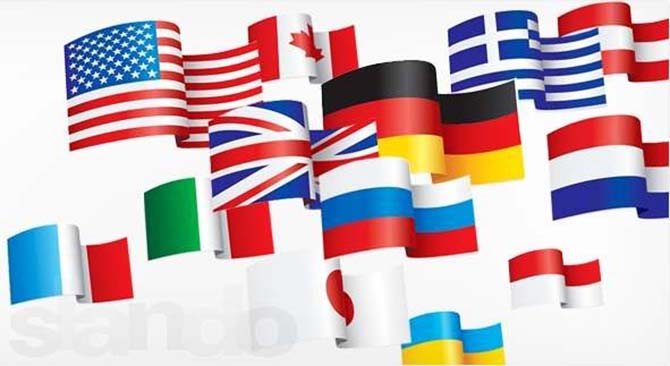
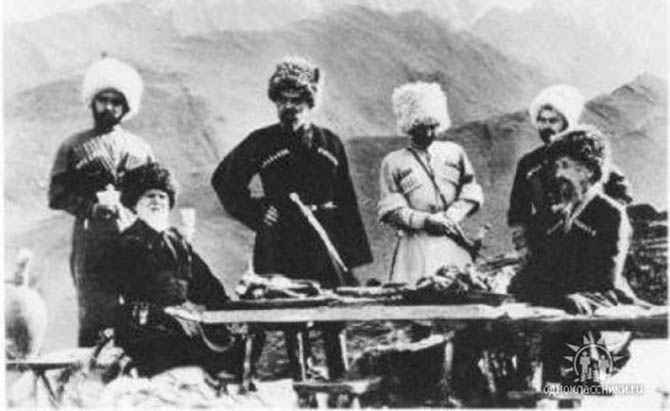
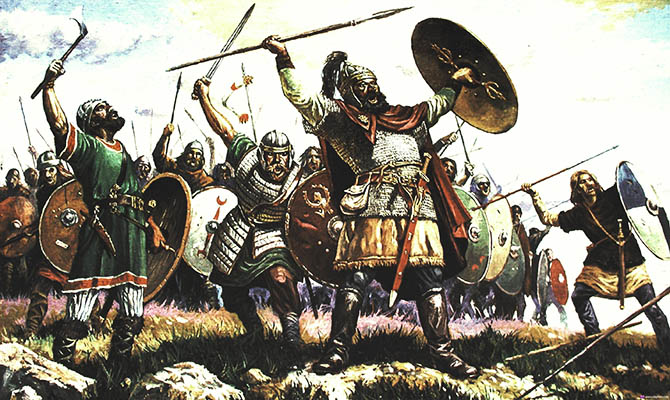
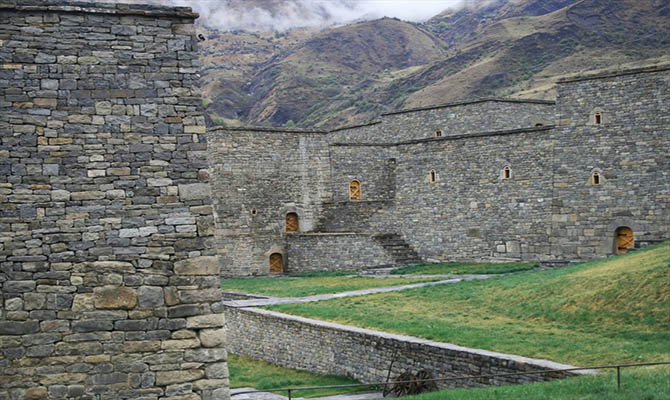
Leave a Reply